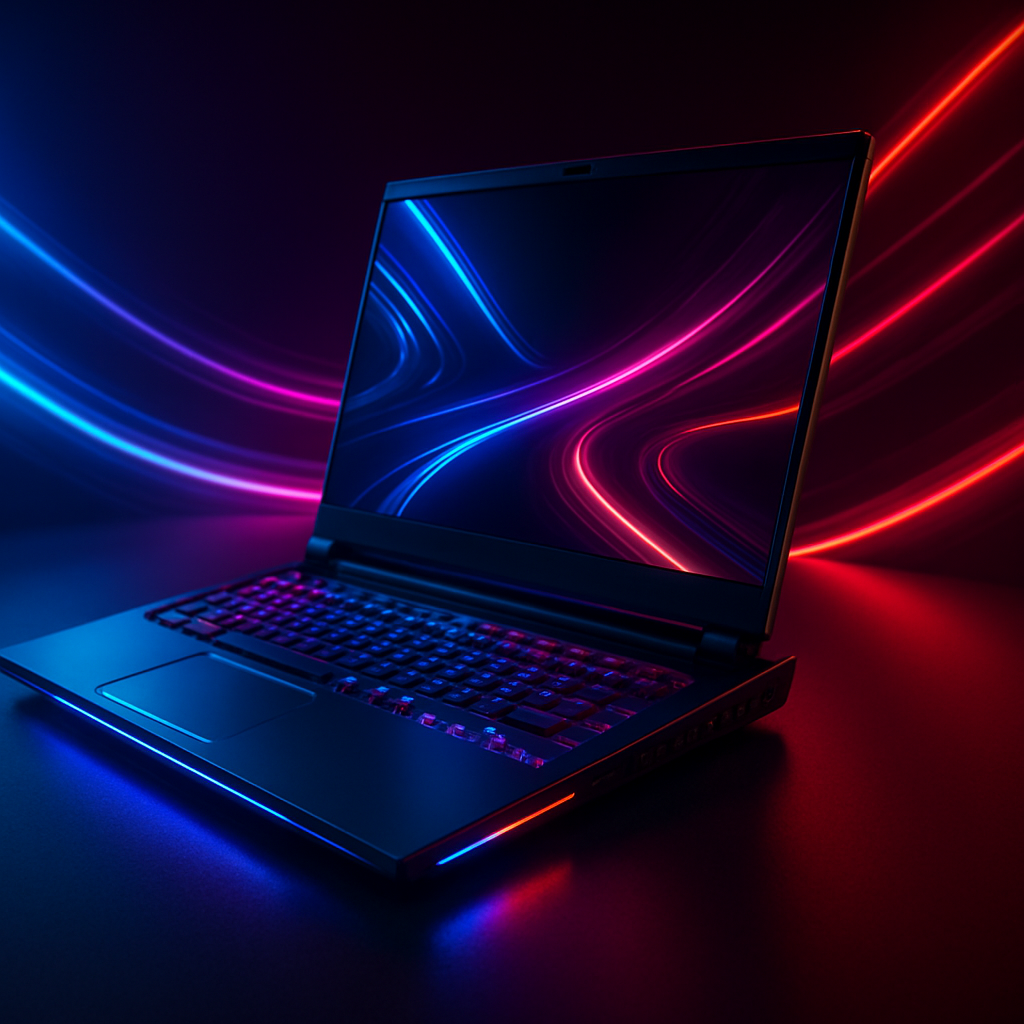The Balancing Act: Identifying the Ideal Balance Among Cost and Efficiency in Gaming Laptops
The world of gaming laptops has changed significantly in recent years, presenting gamers with an abundance of options that provide both high performance and varying price points. Due to advancements in tech, today's gaming laptops are capable of delivering an immersive experience that was previously only possible on expensive desktop setups. However, with so many options available, navigating the right balance between price and performance can appear daunting, particularly for gamers who don’t want to overshoot on features they might not fully take advantage of.
Major brands like ASUS ROG and Lenovo dominate the gaming laptop market, each offering a variety designed to cater to different needs and budgets. ASUS ROG gaming laptops are renowned for their cutting-edge performance and stylish designs, while Lenovo gaming laptops provide impressive capabilities at more affordable prices. As gamers evaluate their options, understanding how to compare gaming laptop price against performance is vital to making an educated decision that enhances their gaming experience without shattering the bank.
Understanding Gamer Laptop Valuation
The price of gaming laptops can differ greatly based on several aspects, including hardware specifications, manufacturer reputation, and additional functionalities. Typically, entry-level models commence from a certain hundred currency, providing basic functionality for occasional gaming. As you ascend the pricing scale, you'll encounter intermediate selections that offer satisfactory functionality with affordability. High-end gaming laptops offer superior performance, but they usually come with a significant cost, reflecting their advanced technologies and latest technology.
Manufacturer reputation plays a critical role in shaping gaming laptop valuations. Famous manufacturers including ASUS Gaming and Lenovo Legion feature various options at varied pricing levels. ASUS ROG laptops are recognized for their premium builds and cutting-edge tech, which often positions them in the top pricing category. Alternatively, Lenovo gaming computers may give comparable capabilities at reduced prices, appealing to financially mindful gamers. Therefore, a possible purchaser should think about how manufacturer influence shapes perceived value and expectations for performance.
Setup is another important aspect that influences gaming laptop cost. Components including the GPU, processor, random access memory, and storage type can increase or decrease the cost significantly. For instance, a laptop fitted with a premium GPU and a high-performance processor will generally cost higher than a basic model intended for occasional gaming. In addition, features like high-refresh-rate monitors, RGB lighting, and advanced cooling technology can also contribute to a laptop's complete pricing. Comprehending how these elements function in conjunction is vital for discovering the perfect balance between valuation and performance.
Assessing Gaming Laptop Metrics Metrics
As evaluating gaming notebook performance, it is crucial to take into account multiple criteria that substantially add value to the overall gaming performance. Essential specifications such as the GPU, central processing unit, and memory play critical roles in establishing how well a device can run resource-intensive games. Top-tier models, like the ROG ASUS notebooks, typically come equipped with high-end graphics cards that enable fluid frame rendering and rich graphics, thereby making them perfect for gamers seeking immersion.
A further essential aspect to assess is thermal management and power longevity. Gaming can produce significant heat, which can cause throttling if not addressed appropriately. Gaming laptops from Lenovo typically come with effective cooling systems designed to preserve peak performance during lengthy gaming sessions. Moreover, battery life is a vital consideration since mobile gaming requires a trade-off between power consumption and performance, impacting the overall usability of the notebook.
Lastly, grasping the significance of display specifications is vital in the performance equation. A elevated refresh rate and low response time are critical for competitive gaming, providing smoother visuals and diminishing input lag. Many gaming laptops, including those from ASUS and Lenovo, offer displays tailored to such needs, making sure that gamers can completely enjoy the graphics and responsiveness their setup delivers. By analyzing these standards in detail, potential purchasers can make wise decisions that align with their gaming preferences.
Top Contenders: Lenovo

When it comes to gaming laptops, ASUS ROG are two brands that consistently shine in terms of price and performance. Lenovo laptops are known for their sleek designs and strong cooling systems, which help maintain optimal performance during intense gaming sessions. Their offerings often come equipped with high-refresh-rate displays and high-performance graphics cards, catering to serious gamers seeking an engaging experience. The pricing of Lenovo laptops can differ, but they tend to offer a range of models to fit different budgets, ensuring that gamers can find a suitable option without sacrificing quality.
On the other hand, Lenovo gaming laptops, particularly the Legion series, offer a compelling balance between capabilities and affordability. The company has made notable strides in the gaming sector, providing features like customizable RGB lighting and advanced thermal management. The pricing strategy of the company often allows for lower-cost options without significant compromises on performance, making them appealing to non-competitive players and those looking for affordability. Their laptops are often praised for their construction and dependability, making them a solid choice for those prioritizing durability alongside performance.
Ultimately, the choice between Lenovo gaming laptops may come down to individual choice and specific gaming requirements. Gamers seeking cutting-edge specifications and aesthetics might lean towards the ASUS brand, while those who prioritize value and solid performance could find the Lenovo brand to be the better option. Both brands offer unique advantages that can cater to a variety of gamers, guaranteeing that there is a fitting laptop for everyone in the ever-changing market of gaming technology.